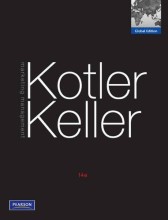Summary: Theories Of International Management
- This + 400k other summaries
- A unique study and practice tool
- Never study anything twice again
- Get the grades you hope for
- 100% sure, 100% understanding
Read the summary and the most important questions on Theories of international management
-
1 week 1
This is a preview. There are 25 more flashcards available for chapter 1
Show more cards here -
What is a MNE?
A multinational enterprise can be defined as ‘a firm that owns and/or controls value creating activities in two or more different countries. An MNE is a firm that uses FDI to establish or purchase income-generating assets abroad, but may also trade goods and services across international borders -
What are four characteristics of FDI to the firm from the home country
1) Nature of the firm changes --> becomes an MNE
2) It has high commitment
3) They do a long-term investment
4) The management is interested in exercising a certain degree of control -
What are two characteristics of FDI to the host country?
1) FDI is a change for a direct injection in the economy
2) FDI comes at a cost of local firms going out of the industry & any wider benefits to the local economy are uncertain -
At which four levels is analysis performed in IB?
1) Country level
2) MNE level
3) Subsidiary level
4) Individual level -
Which different views/levels of analysis are performed in IB
1) resource based view
2) industry based view
3) institutional based view -
What are factors that explain country level analysis?
- international economics
- national economics
- macro-level investments
- trade flows
- national statistics on trade and FDI -
Why did analysis shifted from country level to MNE level?
Hymer established a distinction between financial investments and foreign direct investments: gives the firm control over business activities in other countries. -
What is the result of country specific advantage?
That differences in factors across borders lead to international transactions, whether transfers of capital or goods. -
What is the implication of the product life cycle to international business?
industry change may force firms to relocate parts of their business to other countries -
How can firms utilize a FSA?
It allows them to overcome liability of foreignness (the cost of doing business abroad, derived from the lack of knowledge of the host market)
- Higher grades + faster learning
- Never study anything twice
- 100% sure, 100% understanding






























